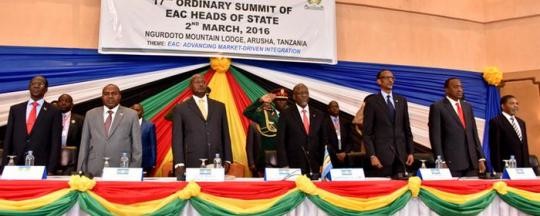The announcement of South Sudan’s accession to the East African Community (EAC) has not been universally welcomed among South Sudanese intellectuals.
The EAC is a group of nations that cooperates in the areas of trade, travel, tourism and harmonization of tax regimes and other regulations. EAC includes Tanzania, Kenya, Uganda, Burundi and Rwanda. Leaders of the EAC nations, meeting at a summit in Arusha, Tanzania on Wednesday, decided to approve South Sudan’s membership application.
Reacting to the news, Professor Marial Awou, the Dean of the Faculty of Economics at University of Juba, said South Sudan should have not joined the East African Community at this time, describing the decision as “unfeasible”.
He further said South Sudan currently cannot compete in a common market with its products, saying its membership in the EAC nations will instead weaken local products against imported products. The economist pointed out that South Sudan is an unproductive country compared to East African countries and that this will create imbalance in trade cooperation.
Marial stressed that South Sudan will never benefit from joining the EAC bloc at this time despite the fact that its accession can create new policies with those countries in terms of trade.
John David, an economics expert at the Diversity Centre for Strategic Studies based in Juba, said South Sudan’s membership in the East African bloc will not develop local industries and that the country will just be a market for products from East African countries.
He pointed out that foreign investors are running away from South Sudan due to devaluation of the South Sudanese pound against the US dollar.
However, for his part, South Sudan’s Presidential Press Secretary Ateny Wek welcomed the move. Speaking to Radio Tamazuj, Ateny downplayed criticism, claiming South Sudan will benefit from the expertise of East African countries especially in agriculture.
“South Sudan can benefit from the expertise of EAC nations, and South Sudan can also benefit by giving out its fertile lands to be cultivated so that it can be able to feed its people,” he said.




